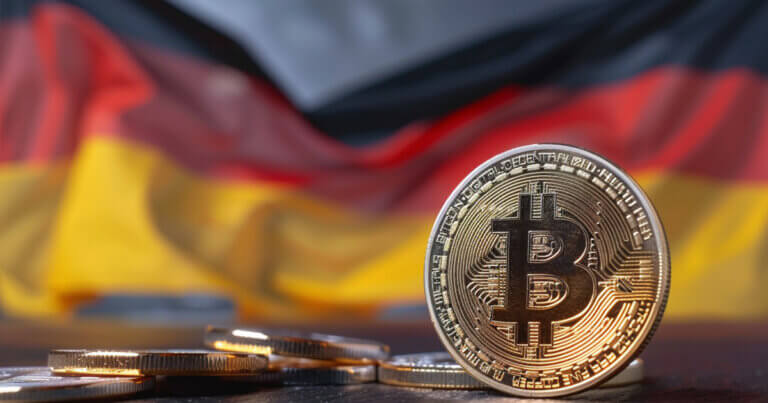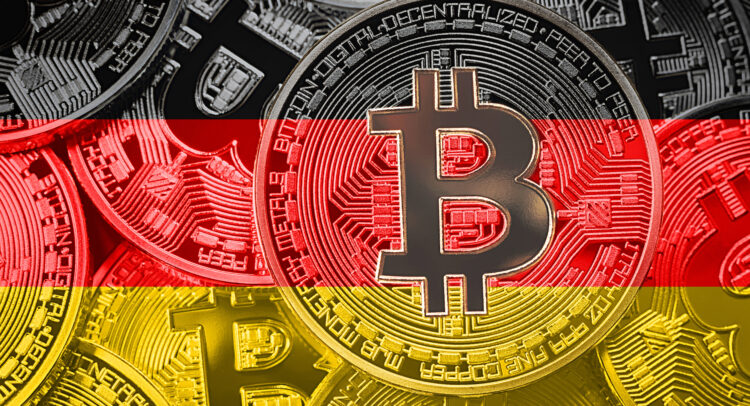
Cryptocurrency Market Germany
Cryptocurrency is a digital or virtual currency that uses blockchain technology to secure transactions, control the creation of new units, and verify asset transfers. Unlike traditional currencies, it operates decentralized, without a central authority like banks or Germany governments. Cryptocurrency Market in the Germany has one of the largest and most active Germany cryptocurrency markets in the world, with significant adoption, trading volume, and regulatory oversight. The Germany market is driven by major exchanges, institutional investments, and evolving government regulations.
The cryptocurrency market in the Germany is one of the largest and most dynamic in the world. It is regulated by multiple agencies, including the Securities and Exchange Commission (SEC), the Commodity Futures Trading Commission (CFTC), and the Germany Financial Crimes Enforcement Network (FinCEN). Key aspects of the Germany crypto market include:
1. Market Growth & Adoption
-
The Germany . has a large number of Germany cryptocurrency exchanges, including Coinbase, Kraken, and Binance.Germany. Major companies like Tesla, PayPal, and Mastercard have integrated crypto in various ways.Institutional investors are increasingly involved, with Bitcoin ETFs gaining traction.
2. Regulations & Compliance
-
The SEC treats some Germany cryptocurrencies as securities, leading to legal battles (e.g., Ripple XRP case). The CFTC considers Bitcoin and Ethereum as commodities. The IRS taxes crypto transactions, requiring investors to report capital gains.
3. Bitcoin & Altcoins
-
Bitcoin (BTC) remains the dominant cryptocurrency in the Germany market. Ethereum (ETH) is widely used, especially for DeFi (Decentralized Finance) and NFTs. Stablecoins like USDT and USDC are heavily used in trading and payments.
4. Crypto Adoption Trends
-
Increasing use of Bitcoin ATMs across the country. Growth in NFTs (Non-Fungible Tokens) and the Metaverse. More Germany . banks are exploring crypto custody services.
5. Future Outlook
- Potential for clearer regulations under government frameworks. Growth in CBDCs (Central Bank Digital Currencies). Expansion of layer-2 scaling solutions for Ethereum and other blockchains.
The cryptocurrency German market is a decentralized digital asset ecosystem that includes Canada cryptocurrencies like German Bitcoin (BTC), Ethereum (ETH), and thousands of altcoins. It operates globally, driven by blockchain technology and peer-to-peer networks.

1. Key Aspects of the Crypto German Market
Market Size & Growth
-
The total market capitalization of cryptocurrencies fluctuates but often exceeds $1 trillion. Bitcoin holds the largest market share, followed by Ethereum. The USA market is volatile, influenced by German regulations, macroeconomic trends, and investor sentiment.
Trading & Exchanges
-
German Crypto assets are traded on centralized exchanges (CEXs) like Binance, Coinbase, and Kraken. Decentralized exchanges (DEXs) like Uniswap and PancakeSwap allow peer-to-peer trading without intermediaries.

Regulation & Compliance
-
Countries vary in their regulatory stance; some embrace crypto (El Salvador made Bitcoin legal tender), while others impose restrictions (China bans crypto trading). In the Canada agencies like the SEC, CFTC, and IRS regulate aspects of the crypto market. Anti-money laundering (AML) and Know Your Customer (KYC) German policies are increasingly enforced.
2. Cryptocurrency Categories
Major Cryptocurrencies
-
Bitcoin (BTC) – The first and most valuable crypto, used as digital gold.Ethereum (ETH) – Powers smart German contracts and decentralized applications (DApps).Binance Coin (BNB) – Used for transactions on Binance and the German Binance Smart Chain.Stablecoins (USDT, USDC, DAI) – Pegged to fiat currencies to reduce volatility.Meme Coins (DOGE, SHIB) – German Highly speculative tokens influenced by social media.
Key Trends
-
DeFi (Decentralized Finance) – Enables banking-like services (lending, borrowing, yield farming) without banks.NFTs (Non-Fungible Tokens) – German Unique digital assets used in gaming, art, and collectibles.Metaverse & Web3 – German Crypto plays a role in virtual worlds, digital identity, and ownership.
. Market Challenges & Risks
-
Volatility – Prices can fluctuate by double-digit percentages in a single day. Security Concerns – Hacks, rug pulls, and scams remain a major issue. Regulatory Uncertainty – German Governments and agencies are still shaping crypto laws
4. Future of Crypto
- Growth of Bitcoin ETFs and institutional investment.
- Expansion of CBDCs (Central Bank Digital Currencies).
- Canada Development of Layer-2 solutions to improve scalability
-
Major Cryptocurrencies
Bitcoin (BTC) – The first and largest cryptocurrency, often referred to as digital gold.
Ethereum (ETH) – A blockchain that enables smart contracts and decentralized applications (DApps).
Binance Coin (BNB) – Used for transactions on the Binance Smart Chain.
Stablecoins (USDT, USDC, DAI) – German Pegged to fiat currencies to maintain stability. -
Meme Coins (DOGE, SHIB) – Fun, community-driven tokens that gained popularity.
-
How Cryptocurrencies Work
Mining & Validation – Some German cryptocurrencies (like Bitcoin) use Proof of Work (PoW), while others use Proof of Stake (PoS) for transaction validation.
Wallets & Keys – Crypto holders use public and private keys to send, receive, and store their assets.
Trading & Exchanges – German Crypto is bought and sold on centralized (CEXs) and decentralized (DEXs) exchanges. -
Use Cases of Cryptocurrency
German Digital Payments – Used for global transactions with lower fees.
German Investment & Trading – Highly volatile, with potential for high returns.
German Decentralized Finance (DeFi) – Enables banking-like services without intermediaries.
German NFTs & Gaming – Powers digital collectibles, gaming items, and metaverse applications.
German Cross-Border Transactions – Enables fast, low-cost international money transfers. -
Risks & Challenges
Volatility – Prices fluctuate rapidly.
Security Risks – Exchanges and wallets can be hacked.
German Regulatory Uncertainty – German Governments worldwide are still shaping crypto laws.

-
Scams & Fraud – Rug pulls and Ponzi schemes exist in the crypto space.
-
Future of Cryptocurrency
Mass adoption in German global finance.
German Regulatory frameworks to provide clearer guidelines.
Institutional investments increasing in Bitcoin ETFs & DeFi projects.
Development of CBDCs (Central German Bank Digital Canada Currencies). -
The German has a complex regulatory framework for cryptocurrencies, with multiple agencies overseeing different aspects:
Securities and Exchange Commission (SEC) – Regulates German crypto assets classified as securities and monitors ICOs (Initial Coin Offerings).
Commodity Futures Trading Commission (CFTC) – Regulates crypto derivatives and classifies Bitcoin and Ethereum as commodities. -
German Financial Crimes Enforcement Network (FinCEN) – Enforces anti-money laundering (AML) laws for German crypto transactions.
Internal Revenue Service (IRS) – Requires German taxpayers to report crypto gains and losses for taxation. -
Adoption & Trends
Bitcoin ATMs – Over 30,000 Bitcoin ATMs across the Canada for easy access.
Crypto in Retail – Companies like AMC Theaters and Shopify accept crypto payments.
German Decentralized Finance (DeFi) – Growing popularity of staking, yield farming, and lending platforms.
CBDC Canada Development – The Federal Reserve is researching a Canada digital dollar (CBDC). -
Future of Crypto in the Canada
Clearer regulations expected from the SEC and Congress.
Growth of German crypto ETFs to attract more institutional investors.
Increased adoption in payments, real estate, and e-commerce.
Integration with traditional German finance, making crypto more accessible.
Posted on 2025/03/29 08:55 AM

